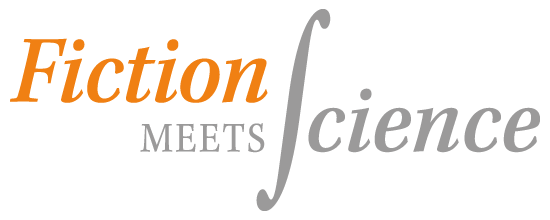1b. The process of writing a science novel: interviews with novelists and scientists
In this project, we do something contemporary literary scholars rarely do: examine the process of bringing science into fiction. What makes science "special" or "difficult" as a topic for fiction? What inspires authors to write about it? What, if any, actual contact with working scientists do they need? Preliminary investigations indicate that cooperation between novelists and scientists may have played a role in the creation of many of the works in the FMS database of science novels. What are the effects of such cooperation? Is it crucial to the production of a science novel?
We address these questions and others in a set of questionnaires and narrative interviews directed at science novel authors and the scientists they have talked to or "followed" (either literally or through reading their publications). Standard questions for the authors are handled in a preliminary questionnaire that elicits educational backgrounds, experience with science (work, scientist relatives or friends, etc.), and preconceptions about science. Interview questions are adapted to each author based on critical readings of his or her works.
Authors are asked to describe the initial impetus or inspiration for a novel. Did the story's scientific themes or scientist characters play a role? Did they conducted background research, and if so how did it affect the trajectory of the story and the writing process? Did this research process differ from that used for other types of material in a novel, and in what ways? To what extent was the research concerned with the accuracy or plausibility of scientific facts and concepts? Another set of questions addresses issues of craft and creativity associated with incorporating science in fiction. How did the author create the novel's scientific settings or establish the voices of its scientist characters? Does the novel's treatment of science and scientists conform to or stand outside what the author perceives to be the traditional stereotypes? To what extent did she incorporate complex scientific concepts, what challenges did this present, and what strategies did she develop for dealing with them? Did she fictionalize the actual scientific content and if so, when, why, and how?
Preliminary questionnaires for the cooperating scientists elicit information about their past experiences communicating to the general public about their work, and about leisure time reading preferences and prior experience reading about science in fiction. Questions for the narrative interviews are based on information retrieved from the writers about the nature of contact, as well as on critical reading of the novels. Scientists may be asked to describe their initial impressions of being interviewed for a novel and their reactions to the published novel. Do they resent the way the material they provided was used? Do they fear publication of the book will affect their relationships with scientific peers? What aspects of the book’s scientific background are accurate or inaccurate, and why or why do they think this matters? Would they recommend the book to colleagues or to non-scientist friends? Scientists are also asked if there are issues in their research that they would like to see explored in a novel or, alternatively, would wish to suppress.
This qualitative study contributes to our understanding of the literary and scientific qualities of the science novel, as well as its historical and sociological positioning. It also allows us to explore the nature and results of communication between the so-called two cultures of arts and sciences.
